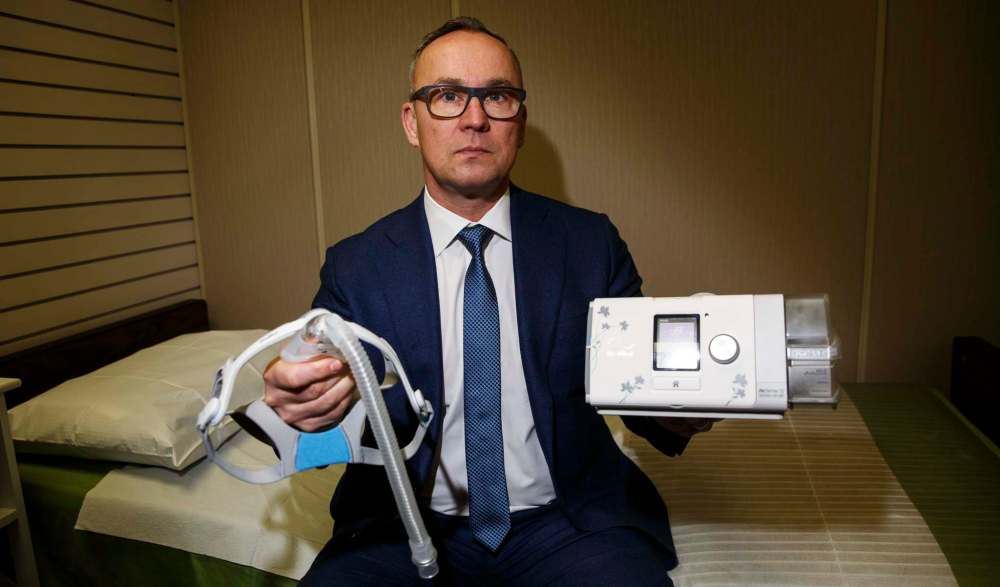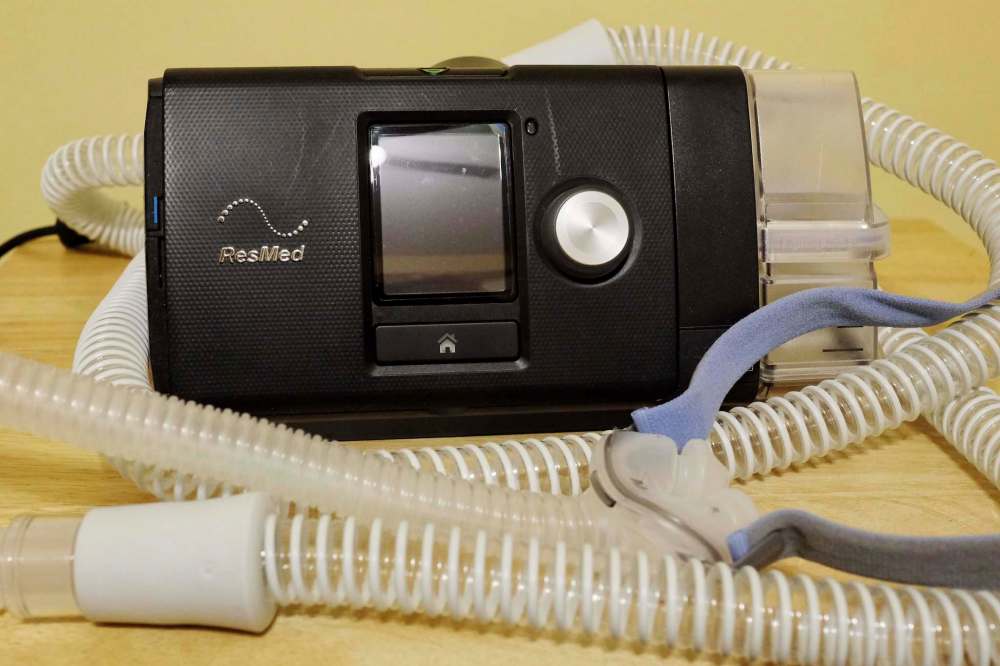Cuts made to sleep apnea coverage
'This is a big step backwards': Canadian Sleep Society executive member
Advertisement
Read this article for free:
or
Already have an account? Log in here »
To continue reading, please subscribe:
Monthly Digital Subscription
$1 per week for 24 weeks*
- Enjoy unlimited reading on winnipegfreepress.com
- Read the E-Edition, our digital replica newspaper
- Access News Break, our award-winning app
- Play interactive puzzles
*Billed as $4.00 plus GST every four weeks. After 24 weeks, price increases to the regular rate of $19.00 plus GST every four weeks. Offer available to new and qualified returning subscribers only. Cancel any time.
Monthly Digital Subscription
$4.75/week*
- Enjoy unlimited reading on winnipegfreepress.com
- Read the E-Edition, our digital replica newspaper
- Access News Break, our award-winning app
- Play interactive puzzles
*Billed as $19 plus GST every four weeks. Cancel any time.
To continue reading, please subscribe:
Add Winnipeg Free Press access to your Brandon Sun subscription for only
$1 for the first 4 weeks*
*$1 will be added to your next bill. After your 4 weeks access is complete your rate will increase by $0.00 a X percent off the regular rate.
Read unlimited articles for free today:
or
Already have an account? Log in here »
Hey there, time traveller!
This article was published 23/01/2018 (2811 days ago), so information in it may no longer be current.
Manitoba has cut funding for specialized therapy equipment used to make sure people with sleep apnea don’t stop breathing when they’re asleep.
The Winnipeg Regional Health Authority, which runs the province’s only Sleep Disorder Centre out of Misericordia Health Centre, announced Tuesday it would be implementing a $500 copay — which it expects will save the region nearly $5 million annually.
Effective April 23, any adult requiring new continued positive airway pressure (CPAP) therapy equipment or replacement equipment will have to pay $500, which could potentially be covered by their insurance. Children will continue to get full coverage.

“This is a big step backwards,” said Dr. Najib Ayas, an executive member of the Canadian Sleep Society, who works in the University of British Columbia Hospital’s sleep disorder program.
Ayas and his colleagues have been pushing for years for the B.C. government to fund some or all of the costs of the therapy with no success. B.C. is one of several provinces that require patients to foot the whole bill.
At the moment, Manitoba is an outlier in that it currently funds it all.
“Everything,” per the Sleep Disorder Centre’s medical director, Dr. Eleni Giannouli, includes “the machine, the service, the fitting and the mask.”
Masks and filters require annual replacements, she said, “and all of these costs are completely covered.”
The April change will bring the province in line with Saskatchewan and Ontario, which both require equipment copays (albeit in the $215 to $275 range), and the patient pay for the supplies, maintenances and repairs themselves.
The move is part of the region’s attempts to be “more efficient and effective in how we align with other jurisdictions across Canada,” said Krista Williams, the region’s chief health operations officer.
“I think we’ve come up with a reasonable strategy,” Williams said of the reform, which will include an appeals process so people who cannot pay due to “extenuating or exceptional circumstances” will have options for help.
People not getting the therapy they need because they can’t afford it is a real concern, said Ayas. While he has no hard figures, he said patients who don’t come in for appointments because they’re worried about costs are “a substantial problem” in his clinic.
CPAP therapy equipment is particularly crucial, he said, for people with obstructive sleep apnea whose airways “collapse at night.”

“What the CPAP does is it prevents the throat from going back and collapsing the person’s airway,” he said.
Between 200 and 230 people are started on CPAP therapy at the Sleep Disorder Centre in Winnipeg each month, Giannouli said, with about 15,000 currently using the therapy.
The abundance of people who have sleep apnea is likely one of the reasons governments don’t want to fund it, Ayas said.
The change has yet to come into force, but Manitoba NDP health critic Andrew Swan is already calling on the provincial government to reverse course.
“This is a cut, plain and simple,” Swan said in a news release. “Manitobans living with sleep apnea have just been handed a $500 bill to get treatment.
“How are patients on limited incomes going to afford this? How are seniors on fixed incomes going to afford this?… Pointing people towards private insurance isn’t a solution.”
jane.gerster@freepress.mb.ca
History
Updated on Tuesday, January 23, 2018 7:08 PM CST: adds photo
Updated on Wednesday, January 24, 2018 11:10 AM CST: Corrects B.C. payment structure.

